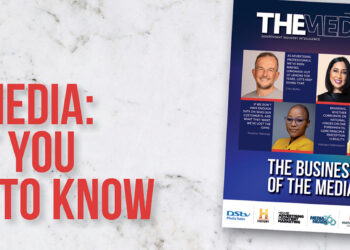Economic Freedom Fighters spokesperson Mbuyiseni Ndlozi has confirmed the party would meet with the South African National Editors Forum – but not directly with the media body, but via an interview on the SABC’s Morning Live.
Executive director of Sanef, Kate Skinner, said a formal letter had been sent to the EFF, and that she hoped the parties would meet this week.
“I think the meeting will go ahead,” she told The Media Online. “We can’t force them to meet. It is actually up to them. However, the public pressure is strong – I think it would make them look bad if they weren’t prepared to have a discussion.”
Sanef at its final council meeting of 2018, held on Saturday, vowed to take steps to “stop unacceptable, inflammatory remarks by Malema and other EFF leaders. These incidents are just one example of a series of abusive comments and threats by politicians to journalists and cannot be tolerated”.
A tirade by Julius Malema outside the Zondo Commission into state capture last week saw the EFF leader name journalists, particularly women journalists, and urge followers to “deal with them decisively”.
Skinner said there was a real danger that this incitement would “filter beyond cyberspace and become physical threats”, as happened to Tiso Blackstar senior political journalist, Ranjeni Munusamy, and another reporter who was threatened outside the state capture venue, which happens to be Tiso’s events space, The Empire.
In case there’s still a belief there’s no consequences from what happened this week, I was just accosted by three men in a shop who were shouting my surname and mocking me. Now that I’m going through it, I really wish there had been more support for Suna Venter.
— Ranjeni Munusamy (@RanjeniM) November 23, 2018
“Criticism is part of democracy but hate speech and sexually abusive threats online and bullying are out of order and can endanger the lives of journalists,” Sanef said in a statement. “They also have a chilling effect in newsrooms, with specifically younger journalists feeling fearful and intimidated and thus withdrawing from critical reporting on politicians.”
Skinner said she couldn’t think of any previous cases when a political party refused to meet with Sanef. “I don’t think it would be in their interests not to meet. Political parties need the media. We build their support,” she said.
Responding to the many critics who believe the EFF is given far too much attention by the media, Skinner said: “Yes, I think we have given the EFF a lot of airtime. We have often focused on the sensational issues. However, what is critical for these elections is that the policy issues and debates are ventilated. This should be the focus – we mustn’t get distracted.”
Sanef plan to present evidence it had collated and collected. “They keep claiming that intellectual arguments are important. So we will be confronting them with cold, hard evidence showing them that their rhetoric has the potential to (and is already) directly undermining the Constitutional principles of freedom of expression, freedom of the media and access to information. Once we have met with them we will assess the situation,” she explained.
With general elections ahead in 2019, and the uneasy political climate in South Africa at present, Skinner said it was critical that we don’t create a situation where the media are threatened. “We are not above criticism but there are proper channels that must be followed if people are unhappy,” she said.
“The first port of call is the editor and then there is the Press Council, the BCCSA and ICASA’s CCC. We must educate the public that these important complaints bodies exist and should be used. That is the responsible thing to do. People need to understand that threatening the media will directly threaten their own ability to understand and know what is going on in the country.”














